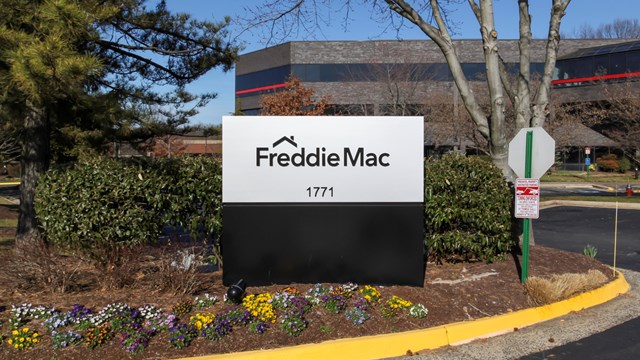As surely as kids dread the back-to-school season every fall, so too must co-op boards face the budget season. A building really has only one shot at establishing income for the whole next year, and while many of you may be far from novices when it comes to preparing a budget, this year has some unique surprises in store for all of us. Determining the optimal level of maintenance income is really a balancing act between various - and sometimes conflicting - goals. To further complicate matters, the effects of a volatile stock market and the widespread evaporation of huge amounts of financial wealth has some shareholders and unit owners acutely concerned about preserving and enhancing the perceived value of their units - and thus more sensitive to any changes in maintenance charges or assessments. They are seeking stability and consistency at a time when real estate taxes and insurance costs and other building expenses loom on the sidelines ready to stir up our game.
Normally, a board would begin to compile an operating budget by utilizing historical data from past years. By simply adding a moderate inflation adjustment for rising costs and then fine-tuning for any unexpected variances between the current year's budget and actual results, the numbers would pretty much fall in line. While accounting professionals like to think that they employ much more sophisticated budget-preparing methods, in truth they would begin in the exact same manner. However (get ready for the sophisticated part), while past history is a valid tool for beginning the budget process, your board and accounting professionals need to be cognizant of other factors which can cause changes in some budgetary items and defy all previous trends. Recent examples of such include the doubling of cost in heating fuel and the resurgence of revenue generated by flip taxes (charges levied when a unit changes hands). It's crucial for your board to conduct a thorough investigation of all of the components comprising your building's operating budget. While many if not most items will require little contemplation and continue to be in line with past costs, this process will force you to intentionally examine each item, and not just focus on those which were prior hot-spots. An important part of your examination should include discerning what outside factors might affect each cost, and based upon their current status, quantifying any projected effects. Another important exercise is the updating of your long-term capital budget, and if necessary, revising the provision for capital project reserves that should be a standard part of any operating budget.
While all this information is no doubt extremely enlightening and thought-provoking, the true crux of this article is to give you a heads-up on new variables that have come into play and which will almost certainly affect everyone's upcoming budget considerations. Even though a little over a year has passed since the terrorist attack on our city, our lives continue to be influenced by this event. As a board member, you may have already witnessed some of the detrimental financial ramifications of this event when renewing your building's insurance policies. Previously, insurance companies were not overly concerned with the possibility of having to replace an entire building. As most structures (of common-interest ownership) in New York City are not made of flammable material, the basic walls would generally survive a fire and negate the need to rebuild from scratch. Now that total destruction is within the realm of possibility, commensurate and significant increases in insurance premiums have ensued.
Unfortunately, these increases are not limited to just property and casualty policies, but also include related coverage, such as workmen's compensation insurance. One extreme example is a building that saw their premiums more than double from $120,000 to $270,000 last year, then shoot up to $410,000 this year. While the co-op was able to sufficiently reduce costs in other areas so that only a moderate maintenance increase was needed last year to absorb the additional cost, the board was forced to implement a 6 percent surcharge assessment for this year's balance to accommodate the new premiums. In all likelihood, a major maintenance increase will be needed by January.
One mitigating factor for assessing your own relative exposure is to consider that this building had had a number of previous insurance claims that contributed to the premium hikes. Nevertheless, as the cost of insurance previously ranged anywhere from 2 to 7 percent of total annual expenses, with the proportionate cost decreasing as the size of the co-op increased, the potential magnitude of any increase - even relative to the budget taken as a whole - should warrant special budget attention.
On a somewhat related note, over the past year the City of New York has not only incurred huge incremental operating costs, but has also suffered significant losses of revenue. As real estate taxes are one source of city revenue, this may explain the impetus behind the city's raising of estimated property market values - which directly translates into increased real estate tax assessments.
The real estate taxation assessment process begins with an annual evaluation of the estimated market value of a property, which is then multiplied by 45 percent to calculate an assessed value. The amount of real estate tax that the city will levy against a property will be the product of either this assessed value or an intermediary transitional value, plus the tax rate currently in effect. This tax rate fluctuates, but is usually determined as part of the city's budget process completed over the summer.
In the past, the change in the tax rate was the most significant variable for budgetary consideration, and therefore a popular guideline used for estimating the percentage by which real estate taxes were going to increase. As this is a hot political issue, the tax rate probably won't change too much, but in actuality any such change would not result in a material budget variance. With the wild real estate market, sales prices have been rising into the stratosphere - so an increase in the estimated market valuations was probably the best place for the city to begin raising needed funds. This is also a wake-up call to insure that your budget takes these increases into account not only now, but as will be explained later on, for the next few years to follow.
One good example of the types of increases we are facing is demonstrated by the following events, the facts of which pertain to a building located in the Midtown North area on the east side of Manhattan. The city's estimated market valuation of the property had stayed at $34.5 million for years, allowing for an easy calculation of the real estate tax provision to be included in the operating budgets for the past few years. Subsequently, the market valuation for the 2001-02 tax year was adjusted to $39.2 million - an increase of over 13 percent.
In a second example, in a building on the high-Upper West Side of Manhattan, the city has consistently and significantly increased the estimated market valuations over the last five years, from $5.5 million to $8.03 million by June of 2003. While this would constitute an alarming increase of 46 percent, it's important to realize that the taxable value increased only 18 percent. Likewise, in our first example, the 13 percent market value increase has currently only resulted in a taxable value increase of 4.5 percent.
The reason for this disparity - besides certain tax exemption programs as a means to lessen the impact of increasing values - the city uses a transitional value to determine the actual amount of tax to be paid. The transitional value is calculated by averaging out the assessed values for the last five years. Initially, this will limit the tax increase, but over the next four years, this transitional value will steadily increase until it is equal to the assessed value. Therefore, the 13 percent increase in estimated valuation may only impact at an additional 2.6 percent per year. Again, because these increases are phased in over time, you will have to provide for each subsequent and additional increase in your budgets for the years ahead.
While you can see from the above examples that for those buildings with no increases, or minimal valuation increases over the last few years, even a large valuation increase can be manageable in the first year or two. Ultimately though, the bad news is that even if the tax rate remains stable, barring any decrease in future estimated valuations, many buildings face double-digit increases in the current year and in years to come. Buildings located in the city have long availed themselves of the services of tax certiorari attorneys for the purpose of petitioning the city to knock down their estimated valuations. Many have had enormous successes, collecting significant real estate tax refunds. However, while you probably have nothing to lose - given the current financial crisis the city is facing, as well as the fact that valuations have been increased all across the board - the chance that these experts can repeat their success may be significantly reduced.
In summary, when preparing your budgets for the upcoming year, pay special attention to the provisions for insurance expense and real estate taxes. Also, it may be prudent to consider how these items will fare over the next few years - thereby getting a head start on planning future funding. The city's Web site at www.nyc.org offers a lot of information that may prove useful to you and your managing agent when calculating the provision for real estate taxes in your operating budget for next year. It's also a good idea to contact both your real estate tax attorney - who may be able to provide an estimate for the next few years - and your insurance broker, to determine what your insurance premiums are expected to be in the future.







Leave a Comment